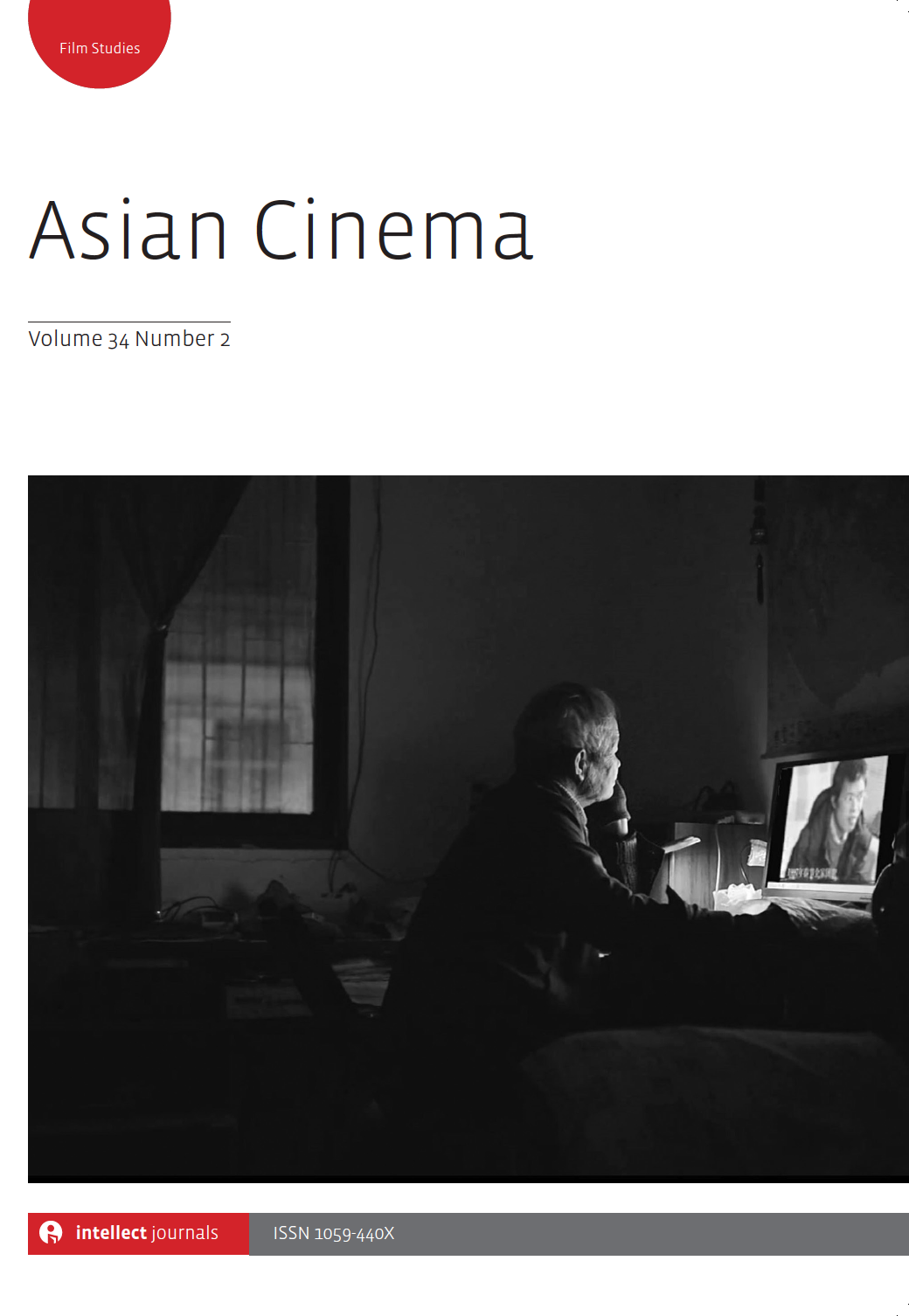- Home
- A-Z Publications
- Asian Cinema
- Previous Issues
- Volume 22, Issue 2, 2011
Asian Cinema - Volume 22, Issue 2, 2011
Volume 22, Issue 2, 2011
-
-
Exoticized Heroine or Hybrid Woman? Diasporic Female Subjectivity in Mira Nair's Mississippi Masala
More LessAbstractFor diasporic populations, the space of diaspora, whether it be the space of home or of nation, is often a fragmented and unsafe space that must be bounded and controlled in order to make that space one's own,. Often it becomes incumbent upon the women to carry the burden of the creation of diaspora space. As essentialized representatives of a nation's cultural identity, women's bodies mark the boundaries of the national imaginary. The desire for a safe, familiar, clearly defined space to call one's own within diaspora, leads to the essentialized notion of home and nation where the female body symbolically represents an ossified notion of native culture as well as the nation itself.1 Thus, any transgression on her part becomes akin to a violation of the family, the home, the community, and finally the nation within the space of diaspora.
-
-
-
Do You Know I Am Looking at You? Visual Pleasure and Body Politics in Tsai Ming-Liang's Films
More LessBy I-fen WuAbstractThe thematization of the change in socio-cultural patterns as a result of urbanization in many of Tsai Ming-Liang's films has been frequently acknowledged. Tsai's films often deal with urban alienation of a society in which people are emotionally blocked and seemingly afloat in a state of loss. His vision of contemporary culture is elaborated through his portrait of Taipei city as an urban malaise in which people are cut off from one another and from their feelings, moving around in drab, underlit apartments, cheap hotels, gay saunas, looking for sexual comfort to alleviate their loneliness and isolation. The city spectacle articulates the desires and emotions of modern people, which have been blocked and offered no spiritual escape routes.
-
-
-
My Name Is Khan and I'm Still Too Flamboyant
More LessAbstractReleased in February 2010, My Name Is Khan -- a commercial Bollywood film directed by Karan Johar has the distinction of being the highest grossing Indian film in overseas markets. It is one of several recent Bollywood films to have sold distribution rights to divisions of transnational companies, in this case, to Fox Star for distribution in the United Kingdom, South Africa, Australia, Southeast Asia, the Middle East, and Europe and to Fox Searchlight for distribution in the U.S. With its global reach, My Name Is Khan has generated a range of critical reviews which often come with cultural bias preconceptions about what constitutes "good" cinema. By examining Western concerns about My Name Is Khan, it is possible to identify obstacles to Bollywood's ability to attract larger Western audiences.
-
Volumes & issues
-
Volume 34 (2023)
-
Volume 33 (2022)
-
Volume 32 (2021)
-
Volume 31 (2020)
-
Volume 30 (2019)
-
Volume 29 (2018)
-
Volume 28 (2017)
-
Volume 27 (2016)
-
Volume 26 (2015)
-
Volume 25 (2014)
-
Volume 24 (2013)
-
Volume 23 (2012)
-
Volume 22 (2011)
-
Volume 21 (2010)
-
Volume 20 (2009)
-
Volume 19 (2008)
-
Volume 18 (2007)
-
Volume 17 (2006)
-
Volume 16 (2005)
-
Volume 15 (2004)
-
Volume 14 (2003)
-
Volume 13 (2002)
-
Volume 12 (2001)
-
Volume 11 (2000)
-
Volume 10 (1998 - 1999)
-
Volume 9 (1997 - 1998)
-
Volume 8 (1996)
-
Volume 7 (1995)
-
Volume 6 (1993)
Most Read This Month


